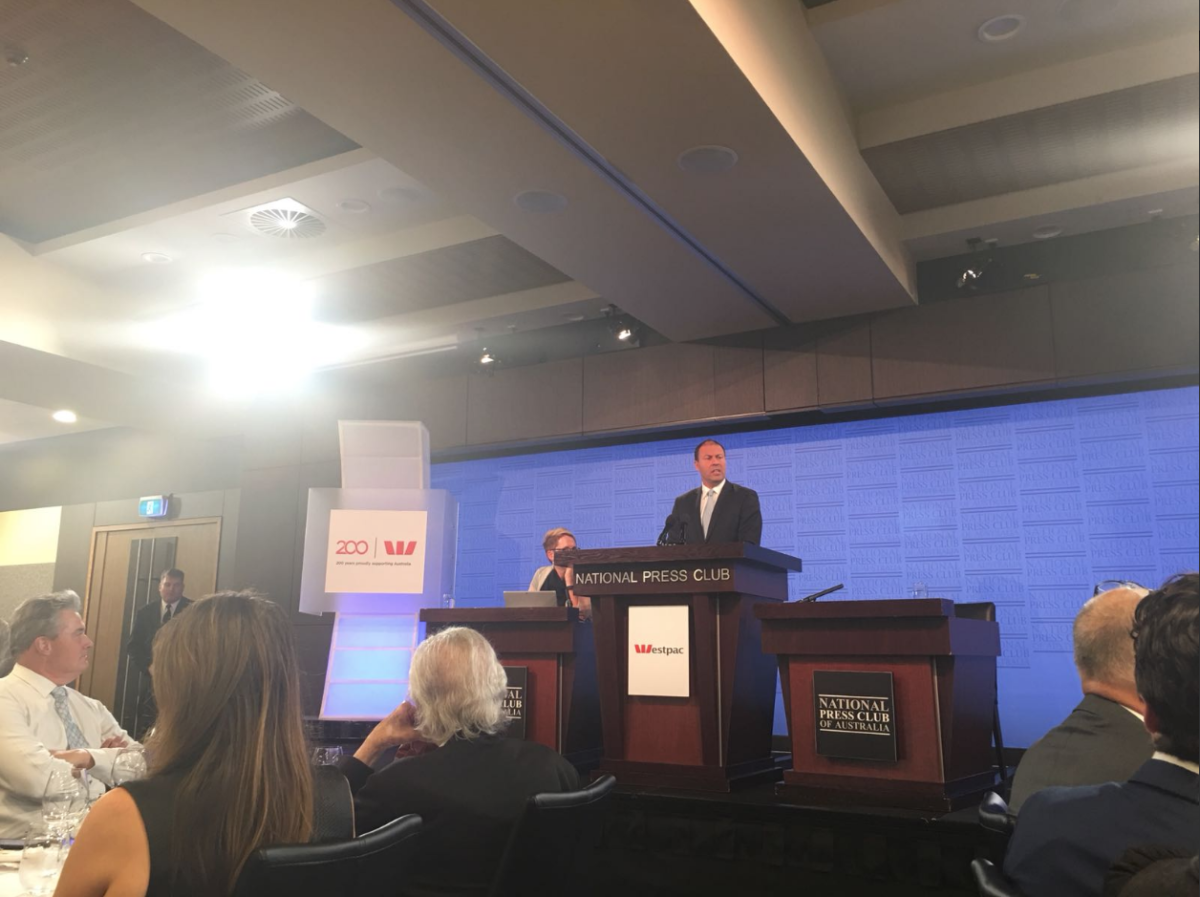Ahead of the next week’s Council of Australian Governments (COAG) Energy Council meeting, at which the Energy Security Board will be seeking the Council’s agreement to move to the next phase of detailed design of the scheme, federal energy minister, Josh Frydenberg, has been looking to prepare the ground for the hotly-contested National Energy Guarantee (NEG). He has presented the NEG as a complete solution for Australia’s energy woes.
Addressing the National Press Club of Australia, Frydenberg said that the NEG will ensure a 23% fall in wholesale prices and save $300 a year on electricity bills.
End of renewable subsidies
According to the minister, renewables under the Guarantee will nearly double from 17% today to between 32 and 36% by 2030.
While he recognized the halving in cost of wind and solar in the last five years as the main driver of the green energy uptake, Frydenberg underlined that increasing penetration of renewables came with the challenge of intermittency.
“The cost is that according to the Australian Energy Market Commission the combination of the Large Scale Renewable Energy Target and Small Scale Renewable Energy Scheme adds around $60 to the annual average household electricity bill,“ said the minister.
Therefore, he said the NEG would dismiss “recklessly high“ emission reduction targets, as well as put a stop to new subsidies for renewables, thus providing a level playing field for all energy sources.
The NEG has been widely criticized as a low ambition plan, proposing inadequate and weak greenhouse gas pollution cuts, as well as confronted by forecasts. For instance, a report by think-tank Australia Institute shows that current policy setting are set to achieve the very low emissions ambition of the governments’ proposed NEG, only five years earlier, noting that a low NEG target would inhibit, rather than boost investment in new renewable electricity generation.
Commenting on the power system of the future, Frydenberg underlined the importance of the government’s investments in Snowy 2.0, other pumped hydro projects and utility scale batteries.
“Energy storage is critical because the stability of our grid cannot be left to the whim of the weather,“ he said.
Coal – a must have
Frydenberg was adamant that keeping coal in the energy mix was necessary for reliable electricity supply, implying that the NEG will be very protective of fossil fuels. Moreover, he claimed that prompt closure of coal power plants would see power bills up and light out.
Commenting on Australia’s aged coal fleet, the minister said that the market has signaled to be more willing to upgrade the existing plants than build new one – potentially disappointing news for the Coalition’s backbench group Monash Forum, which has recently called for tax payers subsidies for new coal fired power generators.
“This is because constructing a new coal fired power station would take more than five years and have an uncertain utilization rate and return on capital,“ said Frydenberg.
Objection on the state level
Several Labor states and the Australian Capital Territory (ATC) have objected to the NEG proposal, saying that it is not enough friendly to renewable energy and supportive of Australia’s Paris commitments.
For the NEG to go ahead, it needs to get a green light from all states. But, following ACT Minister for Climate Change Shane Rattenbury’s reservations about signing up to the NEG, the proposed changes have been surrounded by uncertainty.
In case of the ACT, which has set up its wind farms in South Australia, Victoria and northern New South Wales, the NEG could bring considerable disadvantages, and even penalize its efforts to deliver 100% renewable energy by 2020.
“They (wind farms) would all be out of our NEG region, and if they didn’t count we couldn’t use those to acquit our emission reduction targets and we had to go and buy our energy somewhere else – we’d end up effectively paying twice,” Rattenbury told Guardian Australia, warning that it would be impossible for the ACT to sign up to a deal if jurisdictions have only 48 hours to consider the NEG details.
Meanwhile, the energy ministers of Victoria and Queensland said they were also reluctant about the NEG, as it undermined their local renewable energy agendas.
This content is protected by copyright and may not be reused. If you want to cooperate with us and would like to reuse some of our content, please contact: editors@pv-magazine.com.









1 comment
By submitting this form you agree to pv magazine using your data for the purposes of publishing your comment.
Your personal data will only be disclosed or otherwise transmitted to third parties for the purposes of spam filtering or if this is necessary for technical maintenance of the website. Any other transfer to third parties will not take place unless this is justified on the basis of applicable data protection regulations or if pv magazine is legally obliged to do so.
You may revoke this consent at any time with effect for the future, in which case your personal data will be deleted immediately. Otherwise, your data will be deleted if pv magazine has processed your request or the purpose of data storage is fulfilled.
Further information on data privacy can be found in our Data Protection Policy.